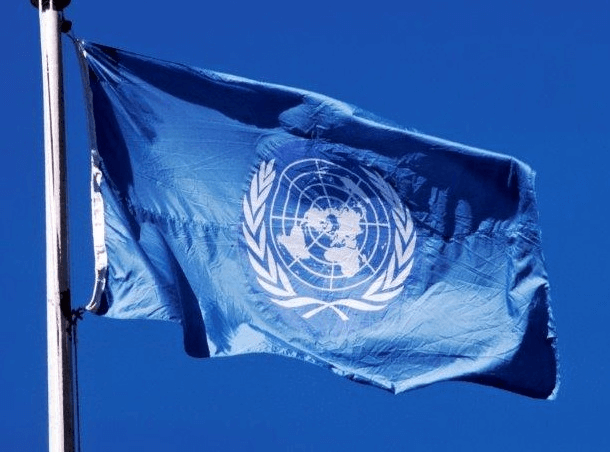It is my pleasure to attend the opening ceremony of the 17th Conference of the States Parties to the Convention on the Rights of Persons with Disabilities and I extend a warm welcome to the delegations representing the States Parties.
I also want to welcome our friends and partners in civil society who work every day to advocate for the rights of people with disabilities. I welcome all the disabled and other participants gathered here for this Conference. I am deeply moved that this important constituency shows everyone the importance of multilateralism, coming together to be heard and to take action.
The Convention on the Rights of Persons with Disabilities, adopted 18 years ago, is a landmark achievement. Its near-universal ratification (currently 191 countries) is a testament to the global commitment to protecting the rights of people with disabilities.
This Treaty is only the beginning of a longer process of change and action. Our work is not done yet. We must continue to translate this commitment into results.
This is the aim of this conference. In particular, the conference will discuss disability rights through three key areas: technology, humanitarian emergencies, and decent work. Our new Disability and Development Report 2024, pre-released yesterday, provides an update on our efforts in these and other areas. While the report paints a picture of progress, it also identifies some glaring gaps where progress must be accelerated.
First, technology: the global need for assistive technology remains largely unmet: 2.5 billion people worldwide require access to at least one type of assistive technology, with access rates ranging from just 3% in low-income countries to as high as 90% in some high-income countries.
One challenge is a lack of technology transfer, with roughly 80 percent of assistive technology innovation coming from just three countries: China, Japan, and the United States. Another challenge is funding, with only 0.1 percent of bilateral aid that includes people with disabilities being dedicated to expanding access to assistive technology. Overall, there is a need for significantly increased investment in assistive technology to enable people with disabilities to pursue education, earn a livelihood, and fully participate in their communities.
Second, humanitarian emergencies. People with disabilities continue to be left behind in humanitarian emergencies, such as natural disasters and armed conflicts. Currently, 39 per cent of people with disabilities find it very difficult or impossible to evacuate during a dangerous situation or humanitarian emergency.
This is unacceptable. This rate has remained virtually unchanged since 2013. To reduce the risks and barriers faced by people with disabilities, they must be included in formal disaster planning and preparedness processes. From access to evacuation, response and recovery, to basic services such as food, water, sanitation and health services, their needs must be included and reflected.
Children with disabilities are particularly vulnerable and face grave risk of being left behind the next day, as we have witnessed in Sierra Leone and today in Gaza. This is particularly important as we celebrate the fifth anniversary of the landmark Security Council resolution 2475 (2019), which for the first time committed to addressing the disproportionate impact of armed conflict and related humanitarian crises on people with disabilities.
The third is decent work. People with disabilities are at higher risk of poverty and continue to be marginalized due to barriers to employment and livelihoods. The employment gap between people with disabilities and those without is nearly 30 percent, little changed since the first Disability and Development Report was released six years ago in 2018.
Moreover, people with disabilities often have low wages, are overrepresented in the informal economy or self-employment, and face precarious working conditions. While 79 percent of countries have laws protecting people with disabilities from discrimination in employment, these protections are not always enforced and have not so far translated into improved employment outcomes.
We must work more effectively towards inclusive hiring practices and ensure equality for people with disabilities and their right to decent work and equal employment opportunities.
The gaps are enormous, but we have the tools and frameworks to guide us. We just need to acknowledge the challenge ahead and redouble our focus on closing these gaps.
The 17th session of the Conference of the Parties is an opportunity to do just that and build on our long-standing efforts as we accelerate towards achieving the 2030 Sustainable Development Goals (SDGs).
The Future Summit in September will be an opportunity to further advance our efforts.
The Summit will be a once-in-a-generation opportunity to strengthen multilateral cooperation on critical issues and address major gaps in global governance and development financing.
This must include the full inclusion of people with disabilities to ensure that the promise and aspirations of the Convention on the Rights of Persons with Disabilities become a concrete reality for all.
I look forward to working with people in this room and around the world on all this important work. We are fully committed to the Resident Coordinator system, and we are working to ensure that our country-level UN teams are inclusive of people with disabilities in our work. On all this important work, let’s move forward. Let’s continue to work to ensure that disability rights translate into progress and results everywhere.
Finally, let us pause for a moment to reflect on the brutal conflicts currently afflicting the world in Sudan, Ukraine and Gaza. These conflicts continue to cause unimaginable suffering, especially for women, children and people with disabilities. In Palestine, we continue to call for an immediate humanitarian ceasefire, so that more and more children are not left behind with disabilities.
We are united in our efforts to achieve the SDGs by 2030, ensuring that no person with a disability is left behind, both at home and around the world.
[END]

